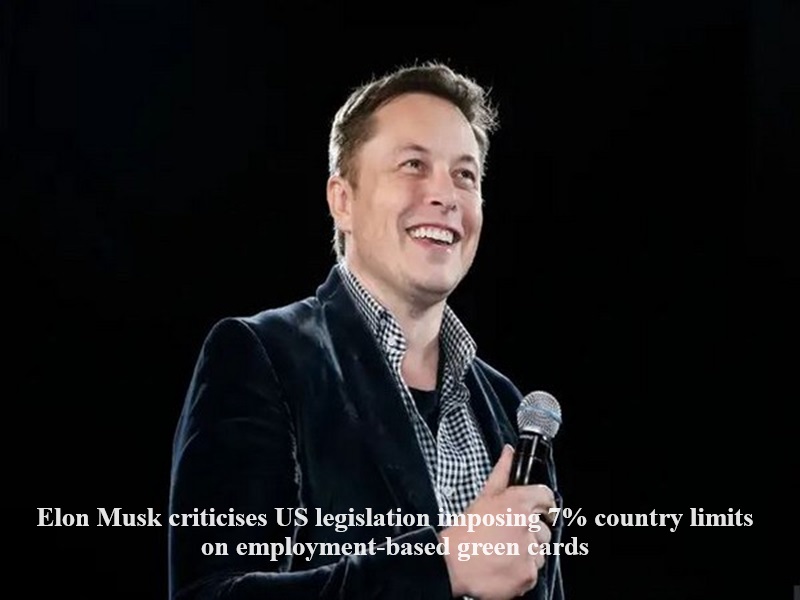
Elon Musk recently utilized a social media platform to voice his criticism of US legislation that enforces country-based restrictions on employment-based green cards, branding it as “racist.” These limitations, originally established in the 1960s, have persisted unchanged over the years.
The term “per-country caps” refers to constraints placed on the issuance of green cards to individuals from specific countries. While approximately 140,000 employment-based green cards are available annually, only up to seven percent of these can be allocated to applicants from any single country. Consequently, when the number of sponsored individuals from a particular country exceeds this seven percent threshold, it results in a backlog.
Primarily, immigrants from India and China have experienced significant delays as a consequence of these country-specific caps. Presently, over a million individuals, including dependent family members, are awaiting employment-based green cards in the United States due to these backlogs.
Elaborating on this issue, Musk posted a statement criticizing the Department of State’s practice of publishing cutoff dates that differentiate between individuals born in China and India and those born elsewhere. He described this practice as “super racist.”
Numerous users echoed Musk’s sentiments in the comment section, with one individual remarking that racism appears deeply ingrained in society. Another commenter highlighted the discriminatory nature of the policy, particularly emphasizing the prevalence of highly skilled professionals from India who predominantly fill tech-related roles that many Americans either cannot or are not qualified to undertake.
Amidst expressions of solidarity with Musk’s stance, some individuals shared personal experiences of being adversely affected by delays in the green card application process, necessitating their departure from the United States during the ongoing COVID-19 pandemic despite having secured work contracts.

Post Your Comments